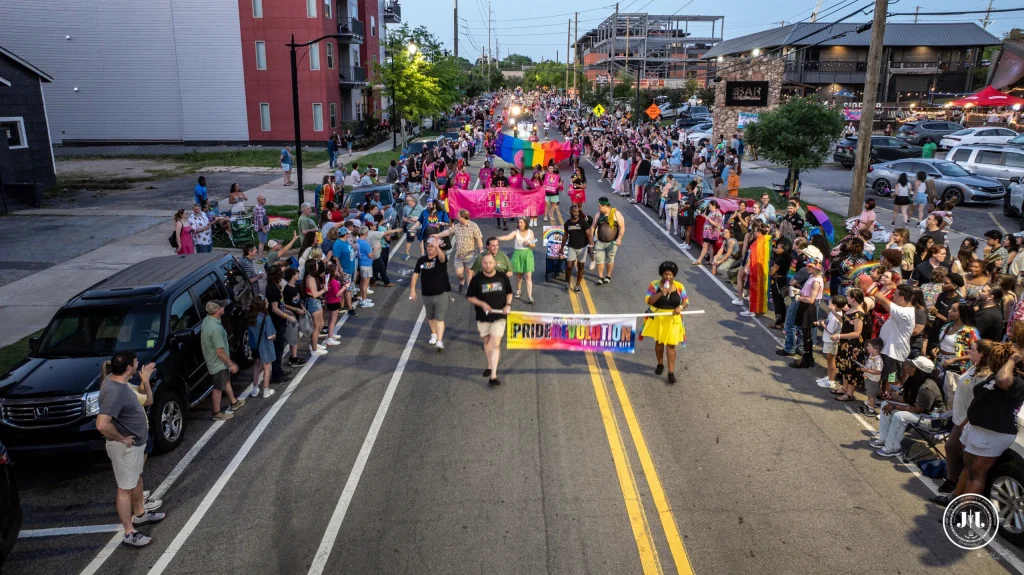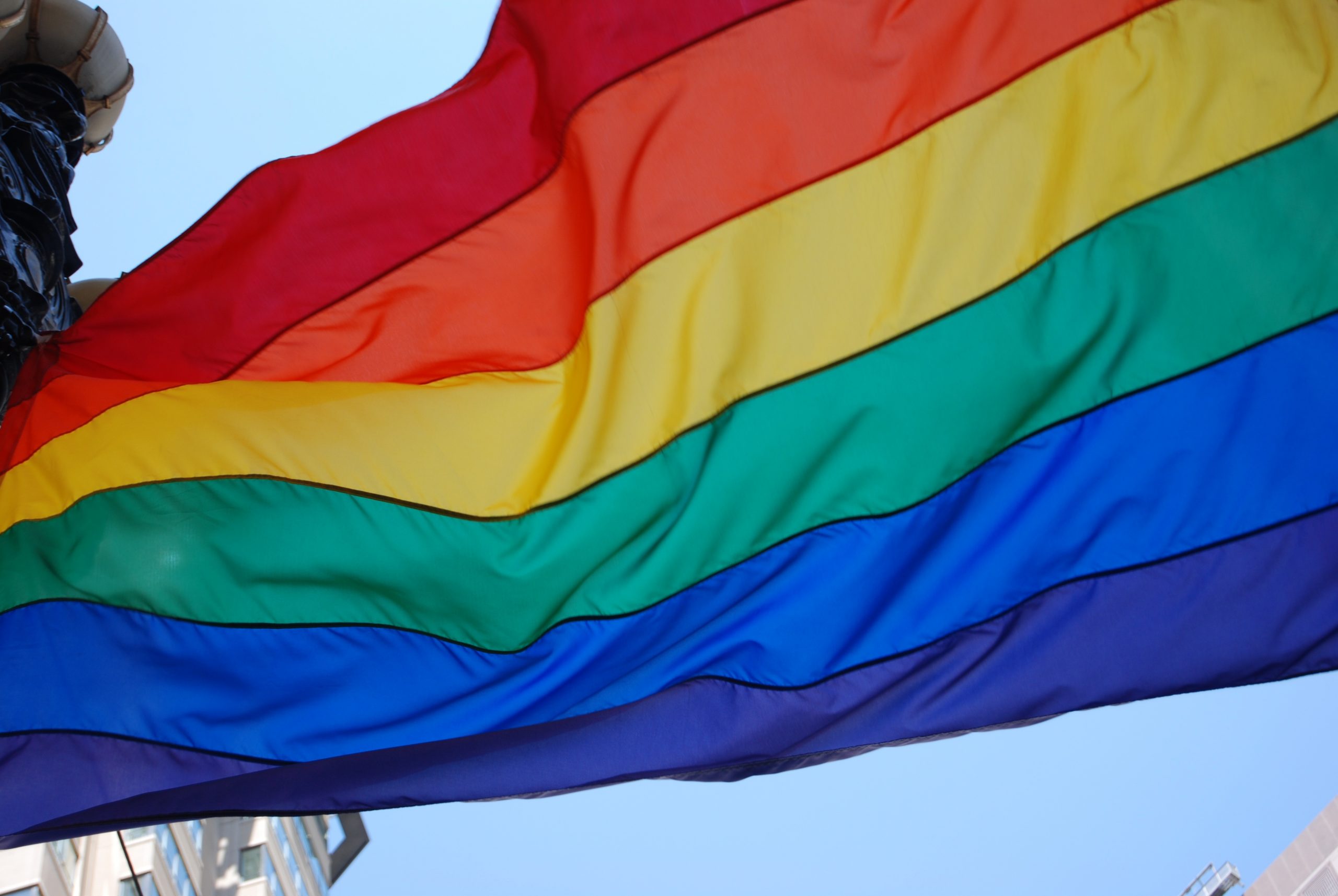Story by: Salem Turner
Worldwide, millions of people share common attributes regarding themselves and the world around them. They’re part of the LGBTQIA+ movement, or the gay rights movement.
According to the Lesbian, Gay, Bisexual & Transgender Community Center, the acronym is an abbreviation for “lesbian, gay, bisexual, transgender, queer or questioning, intersex, asexual, and more.”
In Alabama, a state with a complicated history of personal rights, people have unique ways of celebrating themselves. Across all races and genders, everyone has stories to tell, and this especially rings true for people involved in the Alabama Pride movement.
Pride Month is celebrated annually in Alabama with events, parades, and shows targeted towards all demographics. In Birmingham, Central Alabama Pride hosts an annual Pride Parade and PrideFest, a free event with entertainment and food, according to its website.
Sammy Bignault, president of UA’s Queer Student Alliance (QSA), said that it’s “magical.”
The 2025 celebration will be their second time going, and for someone who didn’t get involved in Pride celebrations till college, they said that “it’s a really nice experience.”
Having Pride and celebrating is super fun,” Bignault said. Tuscaloosa and Huntsville don’t celebrate Pride till later in the year, with Druid City Pride and Rocket City Pride not having their festivals until October.

Photo from: Bhm Now
Luna McDavid, the faculty advisor for QSA, has had positive experiences with Druid City Pride, with drag brunch at Hotel Indigo bringing fond memories for them and their partner. For them, Pride Month is harder to participate in due to being disabled.
“June Pride, if I want to participate, I have to go to Birmingham for Magic City Pride. That’s a much bigger affair and the heat of summer is kinda difficult for me to engage with all of that because I have a disability,” McDavid said.
Through this, there’s not a lot of Pride events in small rural communities, mostly due to the presumed time and effort it takes to put them on.
Post-emo band hassleinone, based out of Cullman, Alabama, said there’s not a lot of Pride in the town. “The community travels to either Huntsville/Birmingham where the events/community gatherings usually are more welcoming,” they said.
Some people’s experiences with Pride evoke vivid memories. Casey Roberts, associate editor of the “Greensboro Watchman” described an unforgettable moment at his first Central Alabama Pride event back in 2017.
“I was still in college and I had just started performing in drag,” he said. “It was just a live open stage underneath an overpass, and they just had one CD player and a boombox, and was just a line of all of us that were tired and hot.”
Despite him being in a “fever dream” at the time due to these conditions, he recalled it being a memorable time for him. A few years following that, he said that he performed in a Pride parade near the now-closed Birmingham bar Our Place.
“We were all mermaids, and it rained halfway through the parade. It was just a summer torrential downpour and we just all got out in front of the bar and ran outside, like hopping in our tails,” Roberts said.
John Allan Clark, owner of the Greensboro Watchman, said that while waiting for Roberts’ parade to pass him, he happened to see a girl from his hometown.
For some, Pride comes with social stigma. Yet, direct discrimination at Pride events in Alabama seems to be rare.
Luna states in regards to Druid City Pride, “There will be one or two protestors standing on the sidelines with their signs or their megaphones.”
However, they noted a strong community coming together to minimize outcry.
“It’s been a pretty good safe space.”
“You just kind of just gotta like hold your head up and walk past it,” Roberts said. “I feel like we’re very good at protecting our own.” Additionally, he said he doesn’t really care about what people think of him, further adding to the supportive community facilitated at Alabama Pride events.
During the 2022 “Cullman Comes Out” event, hassleinone said they encountered vicious online attacks from a local Wallace State professor, who claimed that the Devil had a hand in the event. She was later placed on administrative leave due to the incident.
Nevertheless, while protest does happen, it seems to be minimal in real-world settings, mostly regulated to Internet spaces like social media and chat forums.
Since the #MeToo movement and the rise of diversity in media, Pride representation has spread itself far, making its way into social culture to become a worldwide movement.
“I’ve definitely seen it grow very corporate. I think that’s been a wide critique at large of Pride celebrations,” Roberts said.
He notes the rise of sponsors at Pride events, preferring a time when the events used to be more “grassroots” in nature.
Clark said that back in the heyday of Pride, the events were barely mentioned in the news, as people were far more likely to consider the celebrations as “news of the weird.”
However, nowadays, countless organizations and advocacy groups support the Pride movement, making it a bandwagon that everybody from normies to corporations jumps on. This has made it more sanitized and washed down, as it becomes a topical debate instead of a unique multicultural event.
“I’m nervous about where things are going, because there seems to be a lot of corporations who are eager to slash their DEI, because it’s one more thing to cut from the budget,” Clark said.
Living in Black Belt communities like Greensboro, Clark describes himself as being one of the last gays to come out, even though he’s the oldest person he knows in his circle. Roberts grew up in nearby Marengo County, and said that the small town has a certain charm to it that has made his decision to stay worth it, despite being an unlikely one.
“It’s a wonderfully affirming community, it’s really a diamond amongst all this,” Roberts said.
Regardless of nationality or creed, people’s experiences are different from one-another.
Huey Rudder, president of the Druid City Pride board, said, “Each festival is unique and a special representation of the local community.”
Through past struggles of trans people and people of color, Rudder said that the Pride movement wouldn’t be where it is today.
“Without their resistance and resilience we would not be sweating in Alabama’s June heat dancing and waving our flags. We have to remember Pride was earned for us by the same people that many want to cast aside now.”
